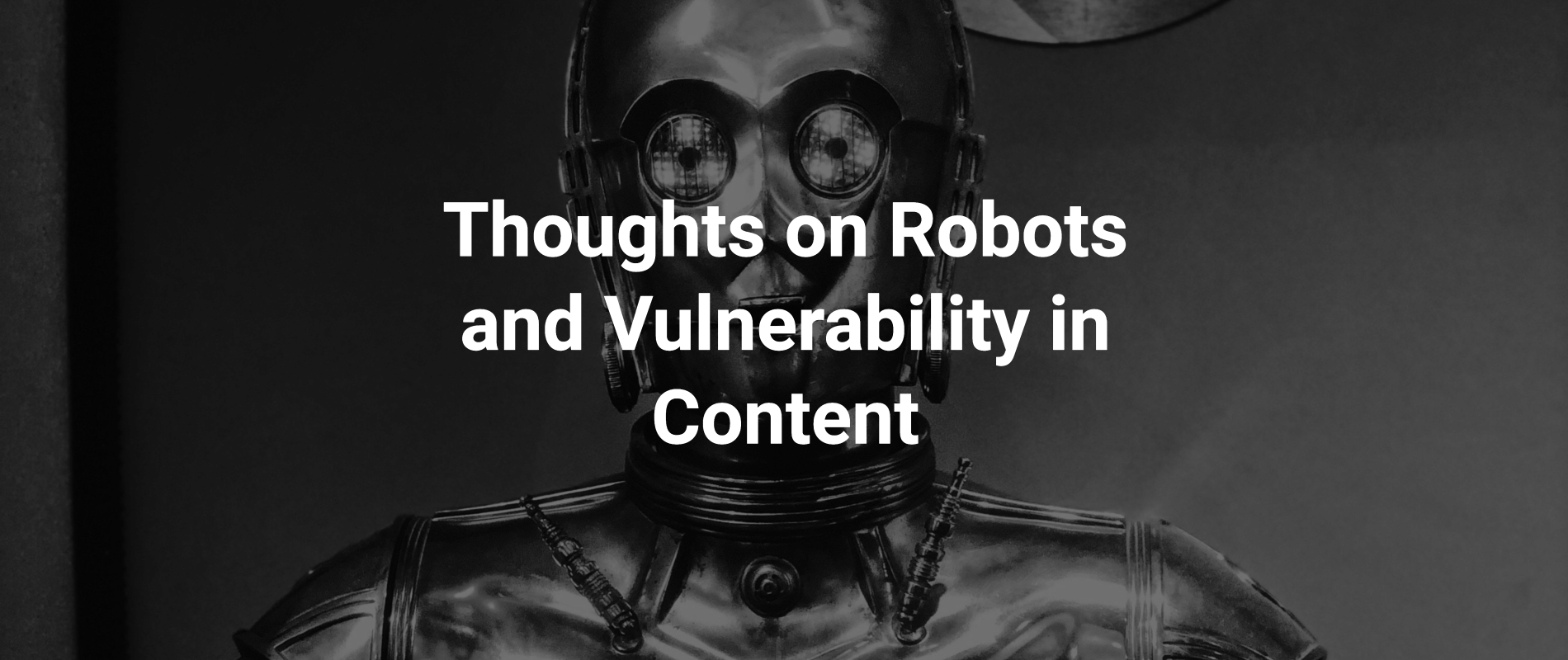Somewhere along the way, business and robots became correlated.
I don’t know when it happened. Perhaps it was somewhere around the dawn of the computer age. But at some point, “professional” language began to equate to humorless, jargony, complex writing.
I am always heartened when I talk to a technology marketing leader who gets excited when I talk about relationship building, connecting human-to-human with leads, and taking a narrative approach to content writing. Their eyes light up when I talk about creating a great experience for the target audience.
Most of the time, projects with these folks go off without a hitch. They and all their stakeholders feel good about the work we’ve done together, and the marketing metrics confirm we’ve gone in the right direction.
Occasionally, we run into a stakeholder who pushes back, who wants to edit the humanity out of the copy and push the product harder. I’m always prepared for this, and ready to walk them through my thinking — I have a good reason for every line of copy I write, and I’m happy to share my process. That’s usually enough to get the draft approved and into campaign production.
And occasionally, I run into a marketing leader who gets … iffy. When they see that the content we’ve created is so different from their competitor’s content — when it’s not like anything they’ve published before — doubts can creep in. Here, too, I’m ready to gently walk them through my reasoning, and reassure them that customers are more likely to connect with more human content.
What strikes me is that in these instances of doubt or pushback, the compulsion for technology companies is to make the content less human and more robotic.
Robots aren’t buying the products.
People are.
Logically, we should write marketing content for people.
But maybe this robotic compulsion isn’t about logic.
Maybe it’s really about emotions.
When you write for humans, there is an emotional component — and that can feel vulnerable. It can feel risky to share your heart.
Personally, I think your customers are worth the risk.
Edited to add: Looks like Google is ready to see more human content online, too. Check out their latest Google Search update announcement.
